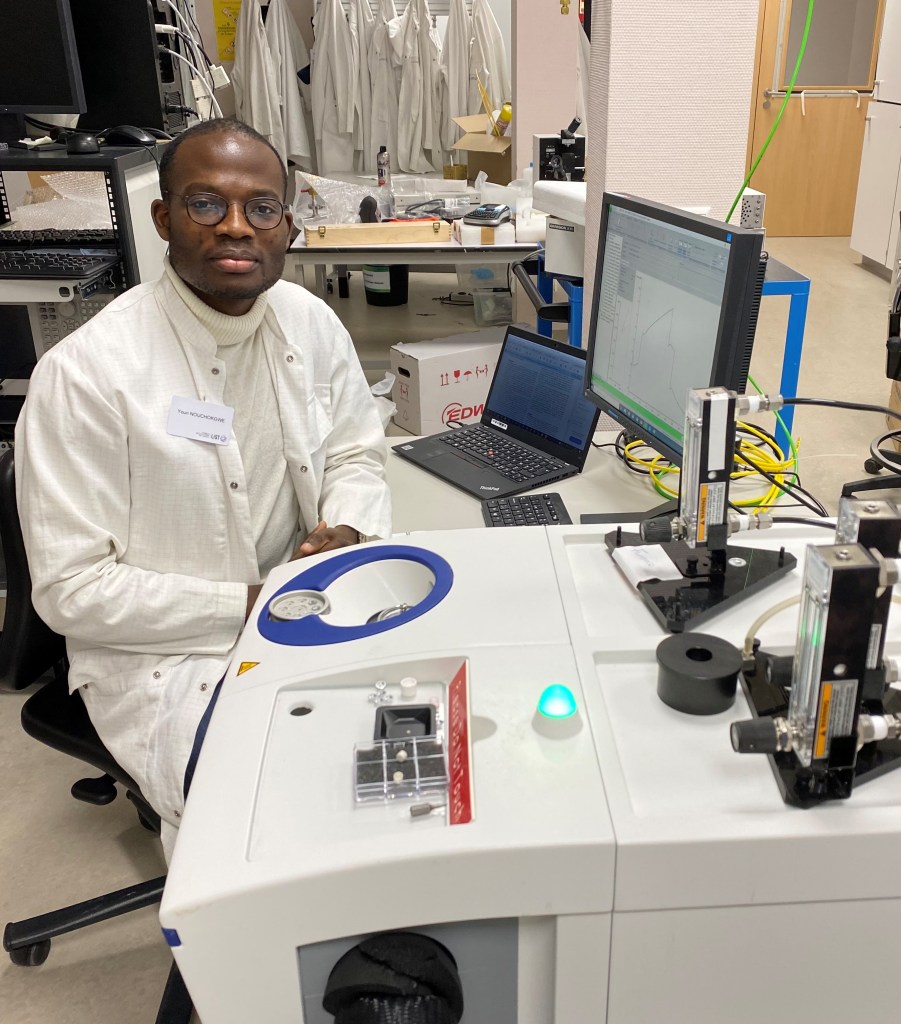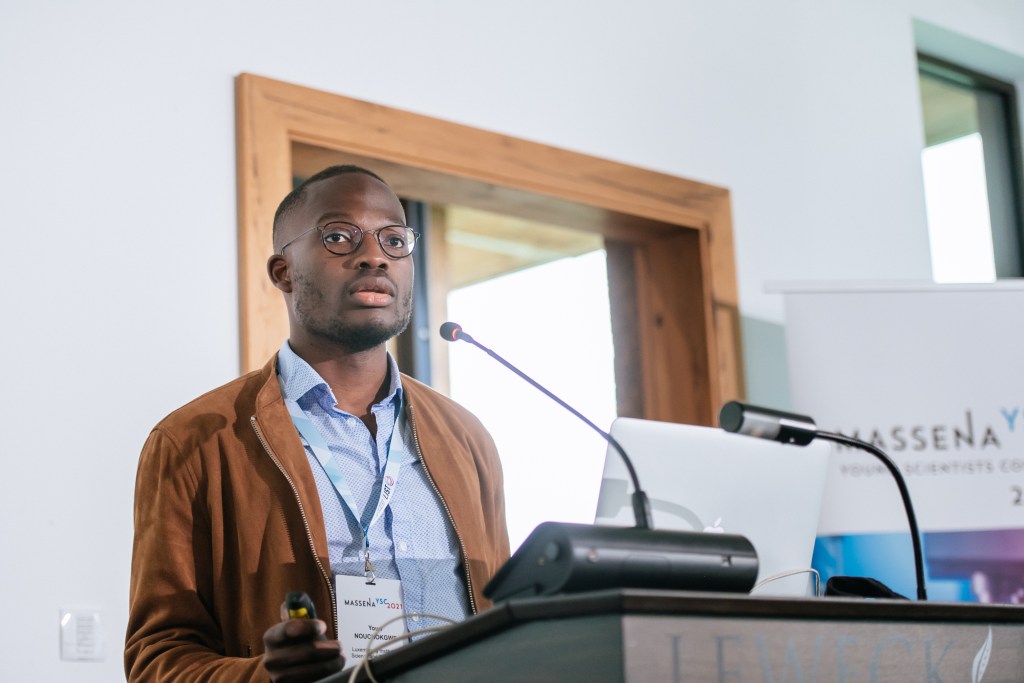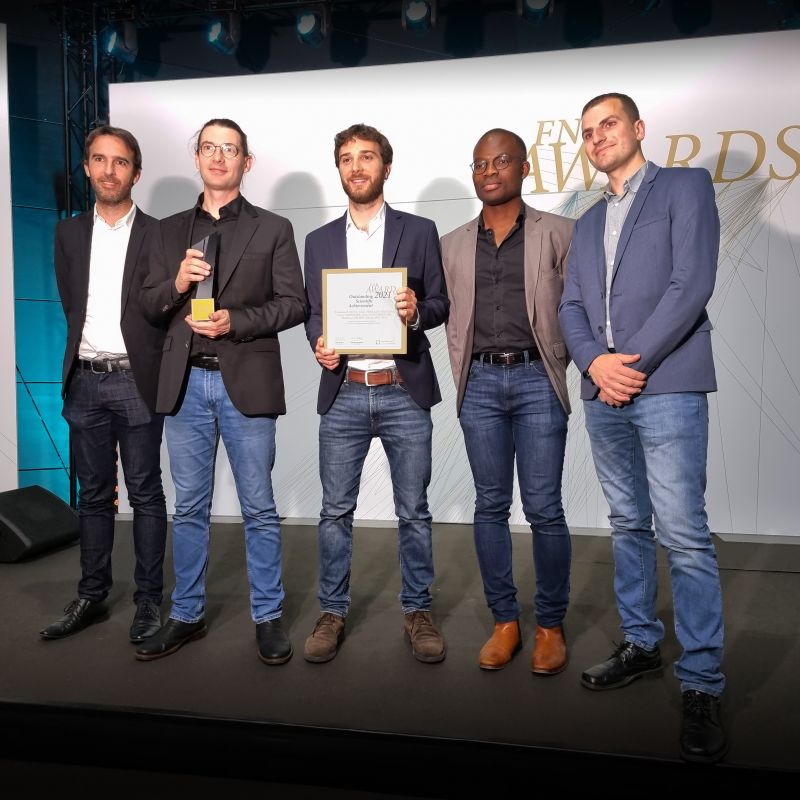In conversation with our young researchers: Youri Nouchokgwe
08 November 2021

Saving energy with electrocaloric materials.
Twenty percent of the world’s energy is consumed to cool our food, drinks, medicines and buildings. This energy consumption is expected to double in twenty years according to the International Energy Agency. For decades, vapour compression technology has been the most widely used cooling technology in our refrigerators and air conditioners.
The search for an appropriate option to the almost exclusively used vapour compression system is a crucial technological challenge in a context where energy efficiency becomes critical.
Youri Nouchokgwe is a final-year PhD candidate at the Luxembourg Institute of Science and Technology (LIST). As a physician, he is looking for materials that can exhibit as much heat/cold as possible with less electrical energy.
Electrocaloric materials as an energy efficient and environmentally friendly solution
Vapour compression technology has low efficiency and, because of the greenhouse gases used as refrigerants, is environmentally harmful.
Electrocaloric materials are promising working bodies for caloric-based technologies, suggested as an efficient alternative to the vapor compression systems, used for refrigeration and air conditioning. Electrocaloric materials are insulators that can heat up and cool down when respectively applying and removing an electric field. However, their intrinsic efficiency defined as the ratio of the exchangeable electrocaloric heat to the work needed to trigger this heat remains unknown.
Recent findings have demonstrated that electrocaloric devices represent a more and more credible alternative.
As such, Youri Nouchokgwe studies the energy efficiency of these materials suggested as an efficient and environmentally friendly solution of replacement to greenhouses gases used as refrigerants. His main goal is to know how much electrical energy is required to trigger cooling/heating in electrocaloric materials.

“Improving the efficiency of these materials will help us to improve the overall efficiency of an electrocaloric system. Our work could help build future efficient and environmentally friendly cooling devices.”
Youri Nouchokgwe
Taking science and research to innovation by understanding physical phenomena
Before taking his PhD studies, Youri Nouchokgwe worked in research through internships. As such, he worked as a Research engineer intern in France. During this experience, he developed his passion for research and innovation. His experiences in research and development led him to take up a PhD.
The Cameroonian researcher admits that “taking science and research to innovation by understanding physical phenomena is what I like to do”. Throughout this process, he feels he can learn a lot, challenge himself and eventually get a rewarding feeling of accomplishment. This is one of the reasons why he joined Research Luxembourg.
Under the supervision of Dr Emmanuel Defay, Youri has conducted his PhD work in collaboration with different institutions and companies. Some of the samples he studied were from researchers in Ulsan National Institute of Science and Technology (UNIST) in Korea and industrial company Murata Manufacturing in Japan. He also collaborated with researchers from the Technical University of Denmark (DTU).

“It was obvious after my postgraduate studies I wanted to learn more. Research challenges me, I learn a lot and I also have the feeling of being impactful in our society.”
Youri Nouchokgwe
Why Luxembourg as a research destination?
To the researcher, the priority put on research in Luxembourg increases motivation and brings experts in different fields from all over the world.

“Luxembourg is a very good place to work as a researcher. Being able to do research without worrying about funds is a luxury. Besides, the Luxembourgish government values research and innovation. This is evident through the outstanding research infrastructures, facilities, and doctoral training.”
Youri Nouchokgwe
What drove Youri Nouchokgwe to Luxembourg was his PhD topic. In fact, his research project received support via a CORE project granted by the Luxembourg National Research Fund (FNR).
Under the leadership of Dr Emmanuel Defay, the research team, which includes Youri Nouchokgwe, has been working on electrocaloric devices, which could replace the refrigerators of tomorrow. This team has made a significant advance in the field: it has broken a crucial barrier by achieving a temperature difference of 13 degrees around the ambient temperature in a prototype heat exchanger, a new record in this field.
Recently, the team received an outstanding scientific achievement award at the FNR Awards.
A fast-growing country
To the researcher, Luxembourg is a fast-growing country and a great place to work and raise a family.
“Luxembourg is an international and safe country, so as a foreigner here I feel welcomed. I have been fascinated by the number of languages people speak here. Besides, Luxembourg is a melting pot of people from different parts of the world and at the same time a human-scale country; where you are likely to meet people from different social status.”
Youri Nouchokgwe
More about the Ferroic Materials for Transducers group in the Luxembourg Institute of Science and Technology.








